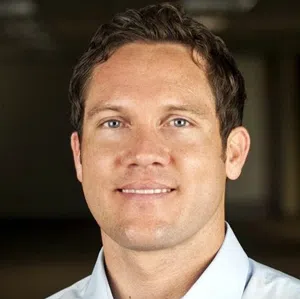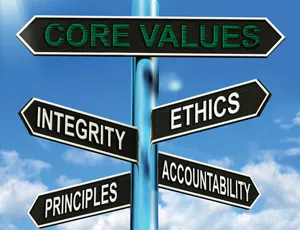Effective leadership begins with your ability to connect with your team
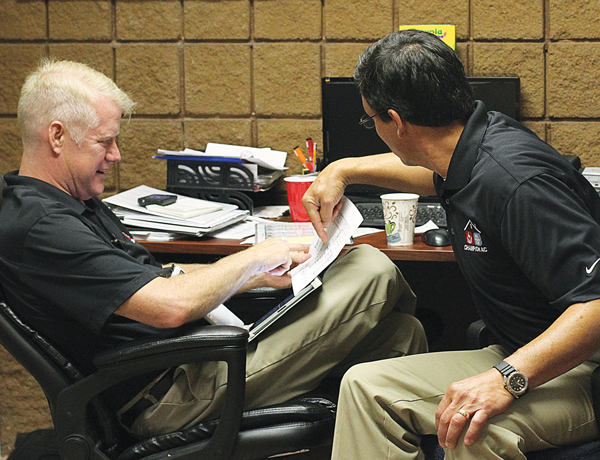 The thermostat is where it all begins. For the air conditioning unit to know what to do, the thermostat must initially communicate the temperature of the air flow. Once that direction is given, all the moving pieces of the air conditioner work together to effectively cool the desired space.
The thermostat is where it all begins. For the air conditioning unit to know what to do, the thermostat must initially communicate the temperature of the air flow. Once that direction is given, all the moving pieces of the air conditioner work together to effectively cool the desired space.
As the leader of your business, you have the same responsibility as the thermostat. You're the guide, the director, the manager. By your communication and direction, the team around you listens, follows and executes the goals of your company.
But why? Why are you doing what you're doing, and how will you empower your team to think differently and work beyond the paycheck?
When I first started my business, I didn't necessarily have the end purpose in mind. After a career in the military, I knew I wanted to start some sort of business, and the road less traveled carried me to the HVACR industry. I wanted to help people, and I wanted the company to be successful. What I didn't realize then, that I passionately realize and live by now, is the root of why I was doing it.
Why, What and How
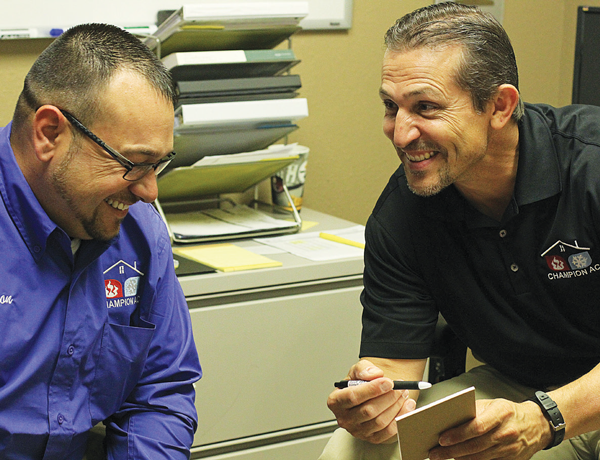 Your "why" is your company's reason for being. At Champion AC, our "why" is to improve everyday quality of air and life. As the owner, leader or manager, your "why" is an important thing to know so you can get your whole team on board with the reason you serve your customers.
Your "why" is your company's reason for being. At Champion AC, our "why" is to improve everyday quality of air and life. As the owner, leader or manager, your "why" is an important thing to know so you can get your whole team on board with the reason you serve your customers.
Leading a team is not often the first thing you think about when you start a business, but it's undoubtedly a role you must be prepared to fill. When you get the right team in place, you have to be ready to lead — keep learning along the way — but be prepared.
Your team has to know what you're doing and why you're doing it — and it has to be more than the purpose of making money. People follow those who lead, not for the leaders, but for themselves. You have to be up front in sharing your "why" and your company's values and beliefs with your team to ensure you have the right people with you.
Everyone from office staff to middle management to technicians know what you're selling — indoor comfort, or heating and air conditioning systems. Your "what" is obvious. Your "how" includes your differentiators and what makes you better or different than other HVACR companies. Perhaps your hours are better, you provide incredible customer service or you have a specialty product, such as solar panels or ductless technology that other competitors don't offer. But your "why" shares your beliefs, what you're about and why you exist.
Do you think someone would rather work for a company that installs AC units or a company that improves everyday quality of life? Why you do it is more important than what you do.
Once you establish why you're doing what you do, you can easily determine that you have the right people in the right seats doing the right things.
Training Leaders
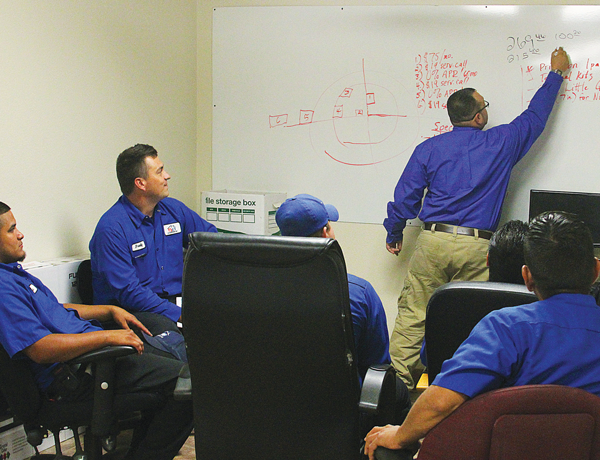 Leadership training, and any type of employee training for that matter, is more about empowering the team around you than anything else. Training takes time, but if you hire properly, you'll see the enthusiasm in your management team's actions as you train them to make a positive impact through the work of your company.
Leadership training, and any type of employee training for that matter, is more about empowering the team around you than anything else. Training takes time, but if you hire properly, you'll see the enthusiasm in your management team's actions as you train them to make a positive impact through the work of your company.
We train our management team and technicians about our "why," which is our purpose. We want them to understand they're a part of something bigger than themselves. The talents and skills they have serve this bigger purpose, and together, we're able to achieve amazing things.
To make it practical during the training, we ask our team to inspect their personal "whys." We ask them to each list what they do on a daily basis to impact their own lives and the lives of others. Then, we ask them to list how they do it. Finally, we ask them why. This is when we drill down to find out why they get out of bed each morning and what fulfills them.
Ultimately, we compare each of their "whys" to Champion AC's "why," so that we can see how they align and make sure their purpose and ours can drive side-by-side to make magic happen.
Our brand promise includes the three most significant promises we make to our customers. It's what differentiates us and sets us apart from other HVACR companies in the market. This is an important element to train our team, because they know the three key things they have to do to fulfill the promise of our company and make our customers satisfied.
Core values are what we hire and fire by — our values are essential to our growth and development. We train our values by storytelling. We talk about the values and how we have seen our employees emulate them around the office, on the work site or even when they think no one is looking.
We educate the team about why these values are important and how they reflect who we are as a company. A values-driven company allows your team members within it to understand what is important to you as an owner or an executive in the company, and these elements should be important to them, as well.
The Bucket List
 One thing that is also of great importance to me when we are both initially training and training up is taking the time to listen to our team. One of the questions I ask to every one of our employees is, "What is on your bucket list?"
One thing that is also of great importance to me when we are both initially training and training up is taking the time to listen to our team. One of the questions I ask to every one of our employees is, "What is on your bucket list?"
As the leader of our company, it's significant for me to understand not only the values, but also the desire of the members of our team and managers of our organization. If I know the items on their bucket list, I can help them to achieve these things, and it excites them and gives them greater joy when they're on the job. It also creates a high rate of performance.
For example, one team member has "go skydiving" as one of their bucket list items. Rewarding great sales or customer service performance may then come in the form of a skydiving trip, as opposed to a day off or a special certificate of recognition. Another member of the team shared they want to take their family on a vacation getaway. So, we'll find a way to help supplement this trip or make it more feasible to achieve.
If we can help our team to achieve their dreams outside of the office, the likelihood they'll reciprocate and make greatness happen inside of the office is far greater than if we didn't seem to care about them.
This is also a question we ask in interviews. It gives us a good idea of the aspirations of the individuals who will potentially become members of our team.
The interview is an essential element to putting the right team together to achieve the mission of your company. It's challenging to assess someone by a resume or job application, and then an interview of an hour or two, so you have to ask the right questions and really get to know the individual who may one day be a leader of your team.
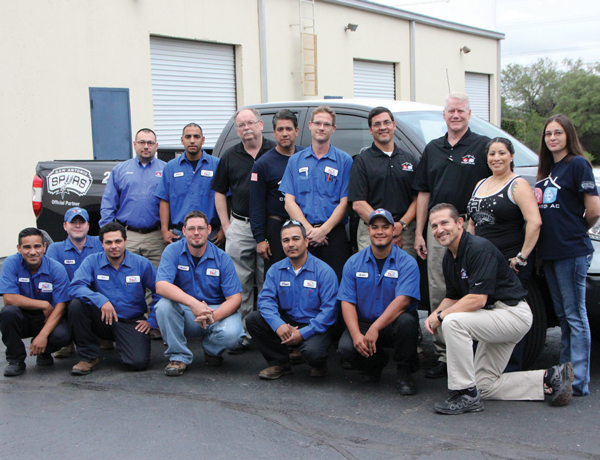 Some of the interview questions we love to ask, outside of your typical skill-based questions, include:
Some of the interview questions we love to ask, outside of your typical skill-based questions, include:
- If you could have lunch with one person, dead or alive, who would it be and why? This question allows you to know what is important to your interviewee and what they value. It can also show you his or her interests and what they enjoy doing outside of work.
- We're sitting here a year from now reflecting on the past year in business — what are we celebrating and what have you learned in your first year with us? This allows you to understand the work ethic of the individual and what is important to him or her in the business world. If they have a good understanding of what your goals are as a company, it's a great opportunity for them to showcase this to you here, and it shows you they've done enough research to know where your company is headed.
- If money were no object and you could have any job in the entire world, what would it be and why? Chances are, if the interviewee answers this question as the job for which they are applying, they may not be showing complete honesty. Think about it: we all may absolutely love what we do as business owners and leaders, but if we could do anything in the whole world and make what we need to make to enjoy ourselves on a daily basis, we may have a different answer. Some of the answers we have heard have included an ice cream taster, an ESPN sports show host, the owner of an NFL team, a scuba diver, and a travel blogger. They are fun to hear, and they give you some good insight into the person you are interviewing.
In addition to giving them the opportunity to answer questions, we also like to have a Q&A circuit during the interview, where we go back and forth with the potential team member asking them questions and having them ask questions in return.
This allows the interview to turn into more of a conversation, instead of just waiting until the end to ask if they have any questions — which may result in the Google search-type questions such as, "What are you looking for in an employee?" and "Describe a typical day on the job." While these questions aren't bad for them to ask, they may, in return, elicit Google search-type answers.
Growth Opportunities
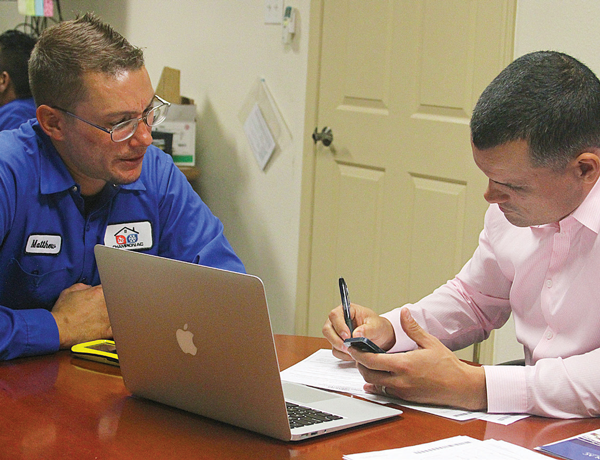 Once you get the right people on your bus, show them the way to grow. Your people count. Find out what counts to them.
Once you get the right people on your bus, show them the way to grow. Your people count. Find out what counts to them.
Talk to them about what would make their career lifestyle more appealing. You may have a plan to give raises or bonuses to your management team or technicians in the form of a monetary increase, but it may be more important to them to have an extra day off once a month or quarter. It doesn't have to be exorbitant or beyond your means. Obviously, profit and sustainability are essential.
Do what you can manage, and be proud of what you offer, but take the time to learn what matters to your employees and how you can help them to best deliver your service. Your encouragement and alignment will help them to be encouraged and aligned with what they are doing.
Lead to Lead
To supplement your initial and ongoing training, always remember to lead by example. Whether or not you realize it, your staff members' eyes are watching you. Employees are impressionable. They see what you do and will often follow suit. Do what's right — what you expect a hard-working, dedicated employee to do.
I recently heard about a colleague who left his job at a service-based company for another company in a similar industry, but different type of work. I asked him what made him leave, because I always enjoy learning through experiences that didn't work. He said three things of note, which I think apply directly to leading by example:
- Keep people responsible.
- Never ask someone to do something you wouldn't be willing to do yourself.
- Focus on each other's successes.
These lessons are good to think about and reflect on as we think about the leaders we are and as we consider the leaders we'd like to coach others to be in the future.
Empower your team while helping them understand the importance of razor-sharp focus and diligent work. Be willing to roll up your sleeves and cheer on the people who are helping to achieve the mission you set for your company to make the world a better place.
Remember that your team members aren't you. They don't own the business, but if they're on board with your company's purpose, they'll own an incredible passion. Act with vigor, confidence and the good kind of fight so that they can follow in your footsteps and walk alongside you. Make sure you are making the right decisions along the way and doing it honorably. Lead so that they may lead.
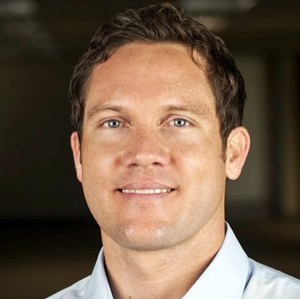 Ben Hubbert, co-owner of Champion AC, is a former member of Special Operations in the Air Force (Combat Control) who's now committed to helping the San Antonio community reduce its demands on the energy grid. Ben is a firm believer in education and constantly teaches new customer service approaches and techniques. Visit
www.championac.com for additional information.
Ben Hubbert, co-owner of Champion AC, is a former member of Special Operations in the Air Force (Combat Control) who's now committed to helping the San Antonio community reduce its demands on the energy grid. Ben is a firm believer in education and constantly teaches new customer service approaches and techniques. Visit
www.championac.com for additional information.

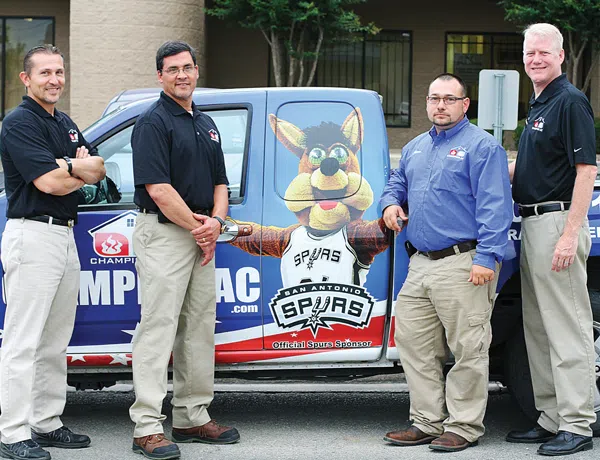
 T
T Your "why" is your company's reason for being. At Champion AC, our "why" is to improve everyday quality of air and life. As the owner, leader or manager, your "why" is an important thing to know so you can get your whole team on board with the reason you serve your customers.
Your "why" is your company's reason for being. At Champion AC, our "why" is to improve everyday quality of air and life. As the owner, leader or manager, your "why" is an important thing to know so you can get your whole team on board with the reason you serve your customers.  Leadership training, and any type of employee training for that matter, is more about empowering the team around you than anything else. Training takes time, but if you hire properly, you'll see the enthusiasm in your management team's actions as you train them to make a positive impact through the work of your company.
Leadership training, and any type of employee training for that matter, is more about empowering the team around you than anything else. Training takes time, but if you hire properly, you'll see the enthusiasm in your management team's actions as you train them to make a positive impact through the work of your company.  One thing that is also of great importance to me when we are both initially training and training up is taking the time to listen to our team. One of the questions I ask to every one of our employees is, "What is on your bucket list?"
One thing that is also of great importance to me when we are both initially training and training up is taking the time to listen to our team. One of the questions I ask to every one of our employees is, "What is on your bucket list?"  Some of the interview questions we love to ask, outside of your typical skill-based questions, include:
Some of the interview questions we love to ask, outside of your typical skill-based questions, include:  Once you get the right people on your bus, show them the way to grow. Your people count. Find out what counts to them.
Once you get the right people on your bus, show them the way to grow. Your people count. Find out what counts to them. Ben Hubbert, co-owner of Champion AC, is a former member of Special Operations in the Air Force (Combat Control) who's now committed to helping the San Antonio community reduce its demands on the energy grid. Ben is a firm believer in education and constantly teaches new customer service approaches and techniques. Visit
Ben Hubbert, co-owner of Champion AC, is a former member of Special Operations in the Air Force (Combat Control) who's now committed to helping the San Antonio community reduce its demands on the energy grid. Ben is a firm believer in education and constantly teaches new customer service approaches and techniques. Visit


